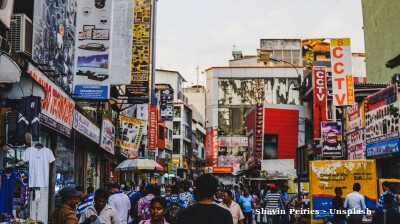A newly released survey from Iran reveals that 92% of respondents are unhappy with the current state of the country, highlighting growing public dissatisfaction.
The data, collected in November 2023 as part of the fourth wave of the "National Survey of Iranian Values and Attitudes," reflects key concerns about the country's economic, social, and political climate, Hammihan newspaper reported on September 8. It also provides insight into the workings of the new government, which would have likely been given the data before being released to the general public.
The survey, conducted by Iran’s Institute for Culture, Art and Communication, involved 15,878 participants across 15 provinces with people aged over 51 years old. While the full results have not yet been made public, some sections have been shared with researchers and gradually released.
Among the findings, inflation and unemployment were identified as the top issues. Over 81% of respondents cited rising prices as the country’s most significant problem, while nearly 48% (47.9%) highlighted unemployment. Other concerns included addiction (26.9%), economic corruption, and housing shortages.
In the survey’s section on Iran’s current condition, 61.6% of participants expressed hope that reforms could improve the situation. However, 30.2% believed the country's problems were beyond repair, while only 8.2% said the status quo was satisfactory.
Notably, women were slightly more optimistic about reform, with 65% of female respondents supporting the idea of change compared to 58.3% of men.
The provinces of West Azerbaijan—where new President Pezeshkian is from—and Kurdistan showed the highest levels of pessimism, with 40.1% and 37.9% of respondents, respectively, stating the country’s situation was irreparable.
The survey also highlighted concerns over environmental issues, security, and job stability. Approximately 69% of respondents identified water scarcity as the country’s most pressing environmental threat, while more than half said they felt their property was not safe.
The data comes amid broader concerns about Iran’s economic and political future, with analysts noting that the results reflect deepening discontent across the nation. Social scientists warn that this growing dissatisfaction could lead to further unrest if reforms are not implemented.
Matin Ramazankhah, a sociologist, said that the survey demonstrates a significant degree of hope for change despite widespread concerns. "The fact that 61.6% of people still believe reforms are possible shows there is a strong social will for improvement," he said.
Simin Kazemi, another sociologist, highlighted the concerning aspect of the results, noting that 30% of the dissatisfied population have no hope for improvement. She pointed out that this hopelessness was also evident when 60% abstained from voting in the first round of the 2024 presidential elections.
With economic challenges, such as inflation and unemployment, at the forefront of public concern, the survey suggests that addressing these issues could be key to stabilising the situation.
The survey was conducted during the previous Raisi administration which was abruptly ended in May when he died in a helicopter crash, the current Iranian government has yet to respond to the survey’s findings, but experts believe the results could serve as a wake-up call for officials to take meaningful action before dissatisfaction grows further.
Features

Ambition, access and acceleration – Uzbekistan’s Startup Garage opens free academy for entrepreneurship
Aim is to train 50,000 young founders by 2030.

Ukraine’s growing energy crisis promises a cold and dark winter
Since the summer, Kyiv has changed tactics. Given the almost complete failure of Western oil sanctions to curb Russian oil exports, it has been targeting Russian oil refineries. The Kremlin has struck back, targeting Ukraine's power system.

Russia, China sign off on Northern Route shipping deal to slash global freight times
Russia and China have signed a landmark agreement to develop and commercialise the Northern Sea Route (NSR), after Beijing tested the route last month, that could slash Europe-Asia cargo transit times and challenge the primacy of the Suez Canal.

Sri Lanka’s economic escape
Sri Lanka’s recovery over the past year reads like a narrow escape rendered into a cautious, albeit unfinished success story.




